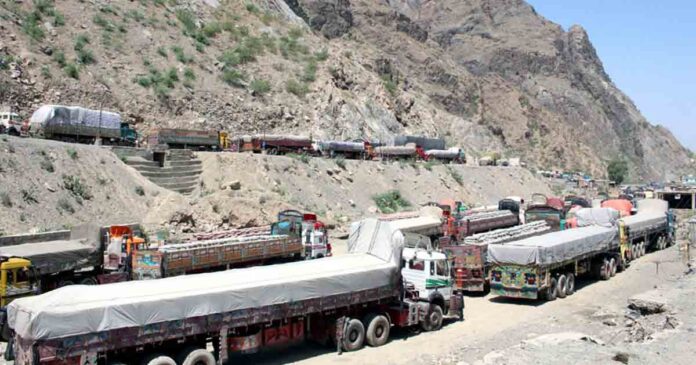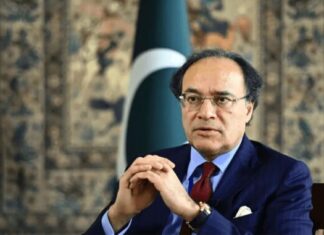After a year-long hiatus, Pakistan and Afghanistan resumed high-level trade and investment talks on Thursday to address key issues related to cargo movement at border stations and ensure smooth bilateral and transit trade.
The previous meeting between both countries occurred in March 2024, when Pakistan’s Commerce Secretary Mohammad Khurrum Agha visited Kabul and met with Afghan Acting Minister for Industry and Commerce Nooruddin Azizi to discuss trade and transit matters.
A statement from Afghanistan’s commerce ministry highlighted several critical issues that emerged during the discussions, including the renewal of the Afghanistan-Pakistan Transit Trade Agreement (APTTA), measures to counter smuggling, and facilitating the export of Afghan coal to Pakistan.
Afghanistan also proposed making the Torkham port operational 24/7, allowing trade through Ghulam Khan port, and introducing a more efficient cross-border vehicle movement process.
Furthermore, the Afghan side suggested providing bank guarantees and setting up an inclusive port administration mechanism between the two countries.
Minister Azizi, leading a high-level Afghan delegation, visited Pakistan to explore ways to strengthen bilateral trade ties. He also met with Pakistan’s Commerce Minister Jam Kamal during his visit. Discussions included forming a joint committee to regularly address trade-related issues, as well as reviewing the status of Afghan refugees.
Recent data reveals an uptick in trade, with Pakistan’s exports to Afghanistan increasing by 84.25% to $592.84 million in the first eight months of FY25, compared to $321.75 million during the same period last year.
Imports, however, saw a modest increase to $18.21 million from $5.47 million. Trade disruptions occurred due to the closure of the Torkham border for nearly 27 days during this period.
Pakistan’s main export to Afghanistan this fiscal year has been sugar, with over 700,000 tonnes exported, much of it heading to Afghanistan.
The talks focused on resolving transit-related issues, strengthening customs cooperation, and facilitating cargo handling processes at the border.
Both sides emphasized the importance of improving border management, enhancing documentation processes, and streamlining cargo monitoring systems to minimize trade disruptions. They also discussed further collaboration in agricultural exports, coal, carpets, and Afghan cotton exports.























